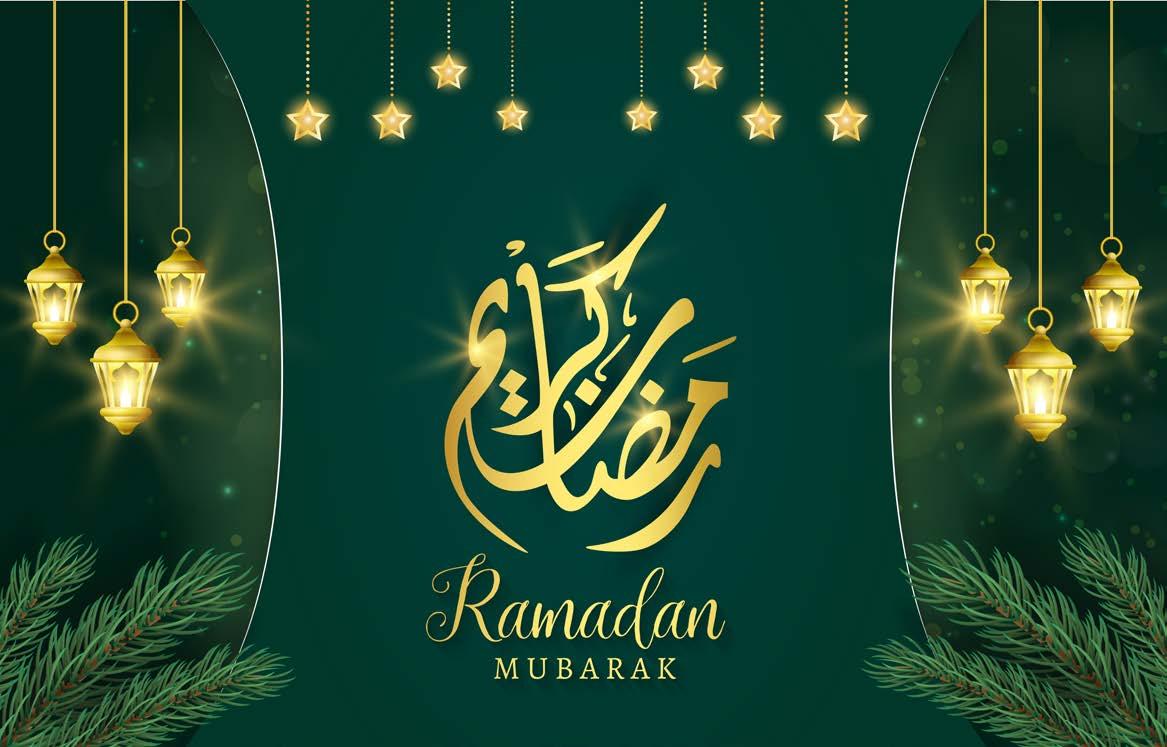
1 minute read
Ramadan Mubarak – Blessed Ramadan
Ramadan begins on Wednesday 22 March and is the most sacred month in Islamic culture.
Beginning with the sighting of the new crescent moon, during Ramadan Muslim faithful fast from food and drink during the sunlit hours as a means of drawing closer to God and cultivating self-control, gratitude, and compassion for those less fortunate.
Advertisement
Ramadan is a month of intense spiritual rejuvenation with a heightened focus on devotion, during which Muslims spend extra time reading the Qur’an and performing special prayers. Some people are exempt from fasting, including pregnant or nursing women, the sick, or elderly people and pre-pubescent children.
During Ramadan, Muslim families will eat breakfast early, before the sun rises.
Health Promoter Ayan Hussein says during Ramadan she normally eats a light breakfast at 5.30am before starting her day.
“My daily routine won’t change. I still have to work as normal and get the kids to and from school, I just can’t eat or drink during the day.”
At sunset, family members will enjoy a few dates and water, and depending on the culture, other light foods such as soup or fruit. This is referred to as iftar which means 'breaking the fast.' After performing the sunset prayers, the family eats dinner. Inviting guests to break the fast or going to someone else’s house for iftar is very common during Ramadan. Ayan refers to this as an “open door policy”.
“A big part of Ramadan is engaging with the community and people around you, especially those who might need a little more help or support. People open their homes to visitors for iftar. My family might go to our friends’ house to break the fast one night, and the next night they come to us. You always prepare extra meals in anticipation of visitors.”
Many families go to their mosque for the night prayer and a special Ramadan prayer called Taraweeh after iftar.
Some mosques and community centres will also host special community events during Ramadan including dinners which are a great way for people to gather and mingle and an additional service to people living alone, students away from home, and those less fortunate.
Fasting during Ramadan is about practising selfcontrol and self-reflection says Ayan.
“It’s about being the best person you can be. It’s a time to abstain from negativity, fighting, and arguing and have empathy for others. Of course, we should all be that way all the time and not just for the month of Ramadan!”
Eid al-Fitr or the Festival of Sweets will mark the end of Ramadan around 21 April.









